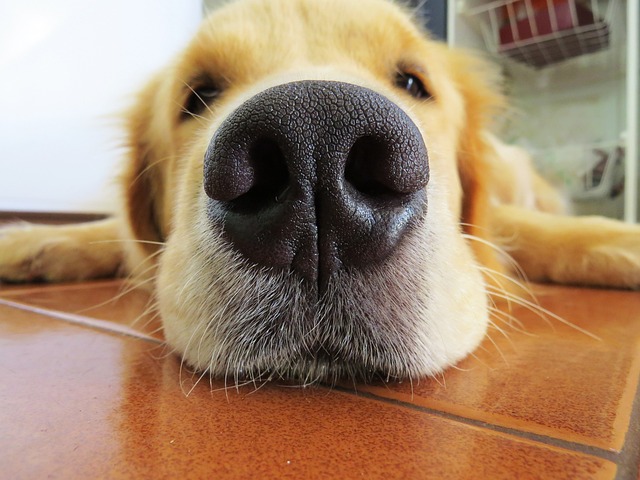Why Does My Dog Have a Wet Nose? Exploring the Reasons”
If you’re a dog owner, you’ve probably noticed that your dog’s nose is almost always wet. While it may seem like a strange and somewhat mysterious phenomenon, a wet nose is actually a sign of a healthy and happy pup. In this article, we will explore the reasons behind why dogs have wet noses, and what it means for their health and well-being.
One of the main reasons that dogs have wet noses is due to the presence of mucus. The mucous membrane inside a dog’s nose produces a clear, watery discharge that helps to trap and remove dirt, dust, and other particles from the air. This mucus also helps to keep the nasal passages moist, which is important for maintaining a dog’s sense of smell. In fact, a dog’s sense of smell is highly dependent on the moisture level in their nasal passages. A dry nose can make it difficult for a dog to detect scents, which can be problematic for their overall health and safety.
Another reason that a dog’s nose is wet is due to their habit of licking it. Dogs instinctively lick their noses to keep them clean and moist. When a dog licks their nose, the moisture from their tongue transfers to their nose, which can give it a wet appearance. Additionally, dogs may also lick their noses as a way of regulating their body temperature. When a dog’s body temperature rises, they will often pant and lick their nose in order to cool down.
It’s also important to note that a wet nose can be an indicator of a dog’s overall health. For example, a dry, cracked nose can be a sign of dehydration or illness, while a runny nose can indicate an infection or allergy. In some cases, a wet nose can even be a sign of excitement or anticipation. When a dog is excited or happy, they may produce more mucus, which can result in a wetter nose.
There are also some misconceptions surrounding a dog’s wet nose. One common belief is that a wet nose is a sign of a healthy dog, while a dry nose indicates illness. While a dry nose can be a sign of dehydration or illness, it is not always an indicator of poor health. Some dogs naturally have drier noses than others, and environmental factors such as weather or indoor heating can also affect the moisture level of a dog’s nose.
In addition to the reasons mentioned above, there are also other factors that can contribute to a dog’s wet nose. One such factor is humidity. Dogs that live in humid environments may have wetter noses than those that live in drier climates. This is because the moisture in the air helps to keep their nasal passages moist and functioning properly. Similarly, dogs that spend a lot of time outdoors or in windy environments may have wetter noses as well. This is because the wind and dust can dry out their nasal passages, prompting the production of more mucus to keep them moist.
Another interesting factor that can affect a dog’s nose is age. Puppies are often born with dry noses, which gradually become wetter as they grow older. This is because the mucus-producing glands in their noses become more active as they mature. However, as a dog reaches their senior years, their nose may become drier again. This is due to the natural aging process, which can lead to a decrease in the production of mucus.
It’s also worth noting that some breeds of dogs are more likely to have wet noses than others. Breeds such as Retrievers, Bloodhounds, and Bulldogs are known for their wet, slobbery noses, while breeds like Greyhounds and Chihuahuas tend to have drier noses. This is due to differences in the anatomy of their nasal passages and the production of mucus.
While a wet nose is generally considered a sign of good health in dogs, there are some instances where it can be a cause for concern. If your dog’s nose is excessively runny, crusty, or has a foul odor, it could be a sign of an infection or illness. In these cases, it’s important to consult with a veterinarian to determine the underlying cause and receive appropriate treatment.
Generally a wet nose is a normal and healthy characteristic of dogs. It is important for maintaining their sense of smell and overall health. While there are many factors that can contribute to a dog’s wet nose, it is generally a sign of good health and should not be a cause for concern. However, if you notice any changes in your dog’s nose, it’s always best to err on the side of caution and consult with a veterinarian. By understanding the reasons behind why dogs have wet noses, you can better care for and appreciate your furry companion.




